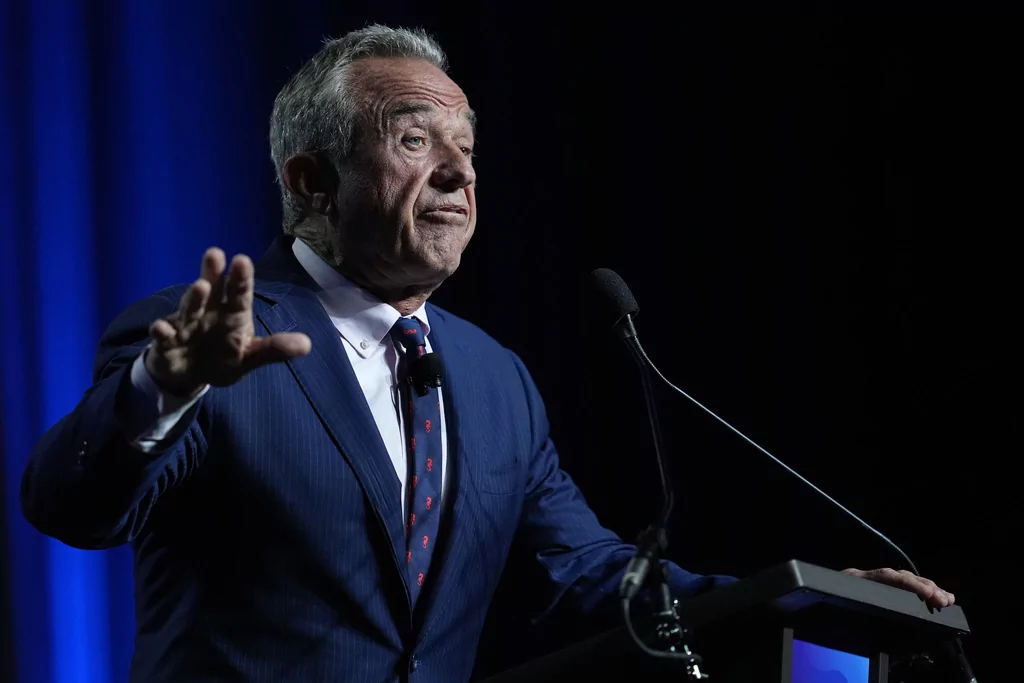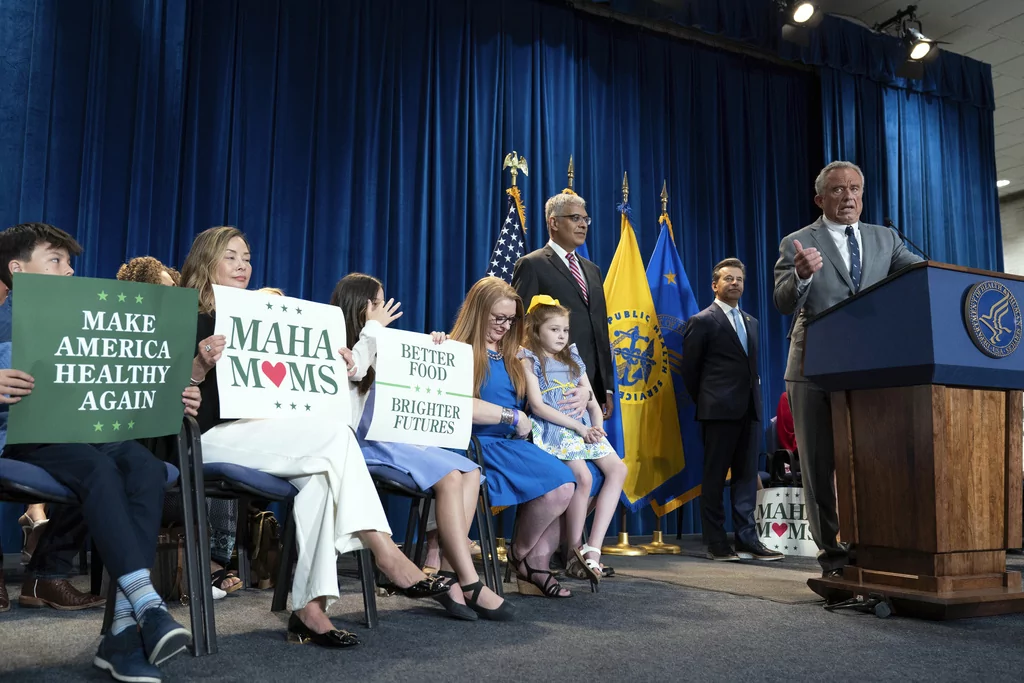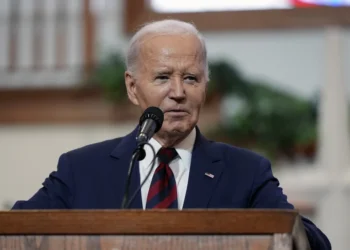The first 100 days of President Donald Trump’s second term has been a whirlwind of activity, punctuated by action at the border, tariffs, turbulent markets, DOGE, multiple lawsuits and constant headlines. This Washington Examiner series “100 Day Report Card” will look at six key issues and how they have come to define the early days of this administration. Part 5 is on the “Make America Healthy Again” movement as executed by Trump’s health and human services secretary, Robert F. Kennedy Jr.
While on the 2024 campaign trail last October, Trump promised that Kennedy could “go wild on health” should he be successful in getting reelected. Following Trump’s victory and since being confirmed by the Senate in February, Kennedy has followed through with the mandate, making bold changes in various areas, from vaccines and nutrition to autism.
Senior administration aides have told reporters anonymously that the White House is pleased that Kennedy has taken such a heavy hand in the administration. They say “Make America Healthy Again” supporters of Kennedy were essential to Trump’s 2024 victory and will likely be crucial for Republicans to maintain control of the legislature after the 2026 midterms.
Kennedy, the legacy Democrat and environmental lawyer turned Republican health spokesman, has leveraged his brand in recent weeks to hold several high-profile press briefings highlighting MAHA victories at the state and federal levels.
West Virginia, Utah, and Indiana have hosted Kennedy since his confirmation for speaking engagements with state officials about MAHA-related policies on nutrition and fluoride in an effort to signal nationwide changes to health issues.
Larry Levitt, vice president of health policy at the think tank KFF, told the Washington Examiner that it’s too early to tell whether or not the MAHA movement will successfully remold HHS in its image, but Kennedy’s personal brand has so far been essential to the effort.
“One thing is clear: He is one of, if not the, most visible HHS Secretary we’ve ever seen,” said Levitt.
Del Bigtree, former communications director for Kennedy’s independent presidential campaign and now head of the advocacy group MAHA Action, told the Washington Examiner that Kennedy is “hitting it out of the park.”
“They’ve achieved more in the first 100 days, frankly, on issues that parents across America have been demanding than we’ve seen in the last two decades altogether,” said Bigtree.
Here are the details on all areas of MAHA policy so far:

Autism
Kennedy, who has long touted the debunked hypothesis that vaccines cause autism, set a deadline of September to determine the cause of the rising rates of autism, drawing the ire of autism and disability advocates.
Included in his plan is to develop a broad-reaching patient information database through the National Institutes of Health, which has also alarmed autism advocates concerned about individual privacy.
The HHS secretary has repeatedly made statements to the effect that children with autism will never be able to live out key moments of the human experience, such as holding a job, having romantic relationships, or appreciating art.
Autism advocates have criticized Kennedy for the rhetoric, calling it discriminatory or even eugenicist, considering that only a small portion of people with autism are severely disabled.
Zoe Gross, director of advocacy at the Autistic Self Advocacy Network, told the Washington Examiner that the Trump administration “absolutely gets an F for its first 100 days” due to its autism and disability policy.
“Autistic people who struggle with these things deserve better than being used as a boogeyman by the Secretary of HHS,” Gross told the Washington Examiner. “These outlandish statements have caused deep concern in the autistic community.”
Measles and Vaccines
Kennedy’s storied past of vaccine skepticism threatened his Senate confirmation among centrist Republicans and has continued to loom over the early days of his tenure as HHS secretary.
As of April 24, the Centers for Disease Control and Prevention has confirmed a total of 884 measles cases nationwide, the vast majority of which are associated with an outbreak in West Texas among highly undervaccinated religious communities.
After visiting with two families in Texas whose children have died from the infection, Kennedy in early April posted on social media that the measles, mumps, and rubella, or MMR, vaccine is the “most effective way to prevent the spread of measles.”
Michael Cannon, director of health policy at the libertarian Cato Institute, told the Washington Examiner that, although he disapproves of the trajectory of Trump-era health policy overall, Kennedy’s endorsement of the measles vaccine has been the high point.
“It’s such a ‘Nixon goes to China’ moment that he may have encouraged some parents to vaccinate their kids, who other secretaries would not have convinced,” said Cannon. “I hope we hear more of the same from him.”
Meanwhile, anonymous insiders within HHS told Politico last week that Kennedy is looking to influence the vaccine advisory board in the Food and Drug Administration to no longer recommend COVID-19 vaccines for children. If true, this could signal further changes to the vaccine schedule in the coming years.

Nutrition: artificial dyes and food stamps
In April, Kennedy and FDA Commissioner Dr. Marty Makary announced that they are working with food corporations to eliminate petroleum-based coloring dyes that have been found to increase the risk of neurodevelopmental disorders in children, such as attention-deficit/hyperactivity disorder.
During the press conference, Kennedy said that the administration has “an understanding” with industry on the matter, but no formal regulation process has been started. It was reported shortly after the press conference that food companies are more reluctant to change the status quo than what the administration portrayed during the press event.
Bigtree praised the effort to remove petroleum-based food dyes, saying, “If that’s all that was achieved, it would make Robert Kennedy Jr. 100 times more successful than any of his predecessors.”
Cannon said that, from his libertarian point of view, Kennedy’s efforts are government overreach.
“Kennedy is also engaging in taking away people’s right to make their own decisions about things like food additives and appears to want to do the same when it comes to other products,” Cannon said.
A key aim of MAHA has been to change food stamp benefits to no longer cover sugary snack and drink purchases. A handful of states, including Indiana and Arkansas, have made inroads on these changes, which Bigtree attributes to Kennedy’s leadership.
“He’s created the culture and he’s created the movement that is making this possible for states,” said Bigtree.
Restructuring HHS
Kennedy has also made sweeping changes to the bureaucratic structure of HHS. In March, the secretary issued a massive restructuring program billed as a streamlining of the department, in line with efforts of the Department of Government Efficiency.
Under the new plan, the 28 “alphabet soup” subagencies within HHS were to be consolidated into 15 new divisions, merging branches with similar functions and drastically reducing the workforce from 82,000 employees to 62,000.
But two days after the massive announcement, Kennedy told reporters that many of those workers should not have been let go, particularly those working on research projects who were mistakenly looped into the bureaucracy-slashing initiative.
Cannon praised Kennedy’s workforce efforts, saying that the department was “long overdue for a correction where they let a lot of people go.”
But Levitt said that it’s still too early to tell how Kennedy’s departmental revamp will affect HHS in the long term.
TRUMP’S FIRST 100 DAYS: WHERE THINGS STAND IN INITIAL MONTHS OF HIS SECOND TERM
“There has been a flurry of activity, but not many tangible changes in policy yet,” Levin said via email. “The effects of reorganization of HHS and massive job cuts will eventually be felt by the public and the healthcare system, but it’ll take time to shake out.”

















